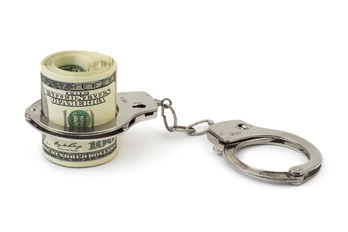Understanding Chapter 7 Bankruptcy
 Are you considering filing for bankruptcy? If so, it can help to understand the steps of the process before you begin. At Lincoln Law, we try to make sure your experience is stress-free and transparent to give you the peace of mind you’re likely searching for. This is a brief explanation of Chapter 7 Bankruptcy, detailing each visit and what to expect at each stage of the process.
Are you considering filing for bankruptcy? If so, it can help to understand the steps of the process before you begin. At Lincoln Law, we try to make sure your experience is stress-free and transparent to give you the peace of mind you’re likely searching for. This is a brief explanation of Chapter 7 Bankruptcy, detailing each visit and what to expect at each stage of the process.


 If you feel like credit card debt has taken over your life, statistics show that you’re not alone. Recent numbers from the Nilsson Report reveal that the average American household carries over $8,000 in credit card debt. With the national unemployment rate hovering at 9.5%, it’s no wonder that Americans are turning to credit cards to meet their everyday needs.
If you feel like credit card debt has taken over your life, statistics show that you’re not alone. Recent numbers from the Nilsson Report reveal that the average American household carries over $8,000 in credit card debt. With the national unemployment rate hovering at 9.5%, it’s no wonder that Americans are turning to credit cards to meet their everyday needs. To many people, the very idea of filing for bankruptcy is terrifying. In fact, the only reason many of our clients find us is only because the fear of mounting debt and harassing creditors becomes even greater. While the prospect of facing bankruptcy can be scary at first, much of the fear is based on myths rather than reality. Here, we’ll debunk the most common of these untruths:
To many people, the very idea of filing for bankruptcy is terrifying. In fact, the only reason many of our clients find us is only because the fear of mounting debt and harassing creditors becomes even greater. While the prospect of facing bankruptcy can be scary at first, much of the fear is based on myths rather than reality. Here, we’ll debunk the most common of these untruths: In October 2005, the laws which govern Chapter 13 bankruptcy changed. One of the more significant ways the law changed dealt with the eligibility requirements for filing for Chapter 7 and Chapter 13 bankruptcy.
In October 2005, the laws which govern Chapter 13 bankruptcy changed. One of the more significant ways the law changed dealt with the eligibility requirements for filing for Chapter 7 and Chapter 13 bankruptcy. How Your Vehicle Can Survive the "Repo Man"
How Your Vehicle Can Survive the "Repo Man" The decision to file for bankruptcy is not one to take lightly. With the multiple bankruptcy plans available and the changes to bankruptcy law that occurred in 2005, it is important to be an informed about options from various scenarios. If you are considering filing for bankruptcy but have concerns about what may happen should your income change, here is an overview of the facts.
The decision to file for bankruptcy is not one to take lightly. With the multiple bankruptcy plans available and the changes to bankruptcy law that occurred in 2005, it is important to be an informed about options from various scenarios. If you are considering filing for bankruptcy but have concerns about what may happen should your income change, here is an overview of the facts.